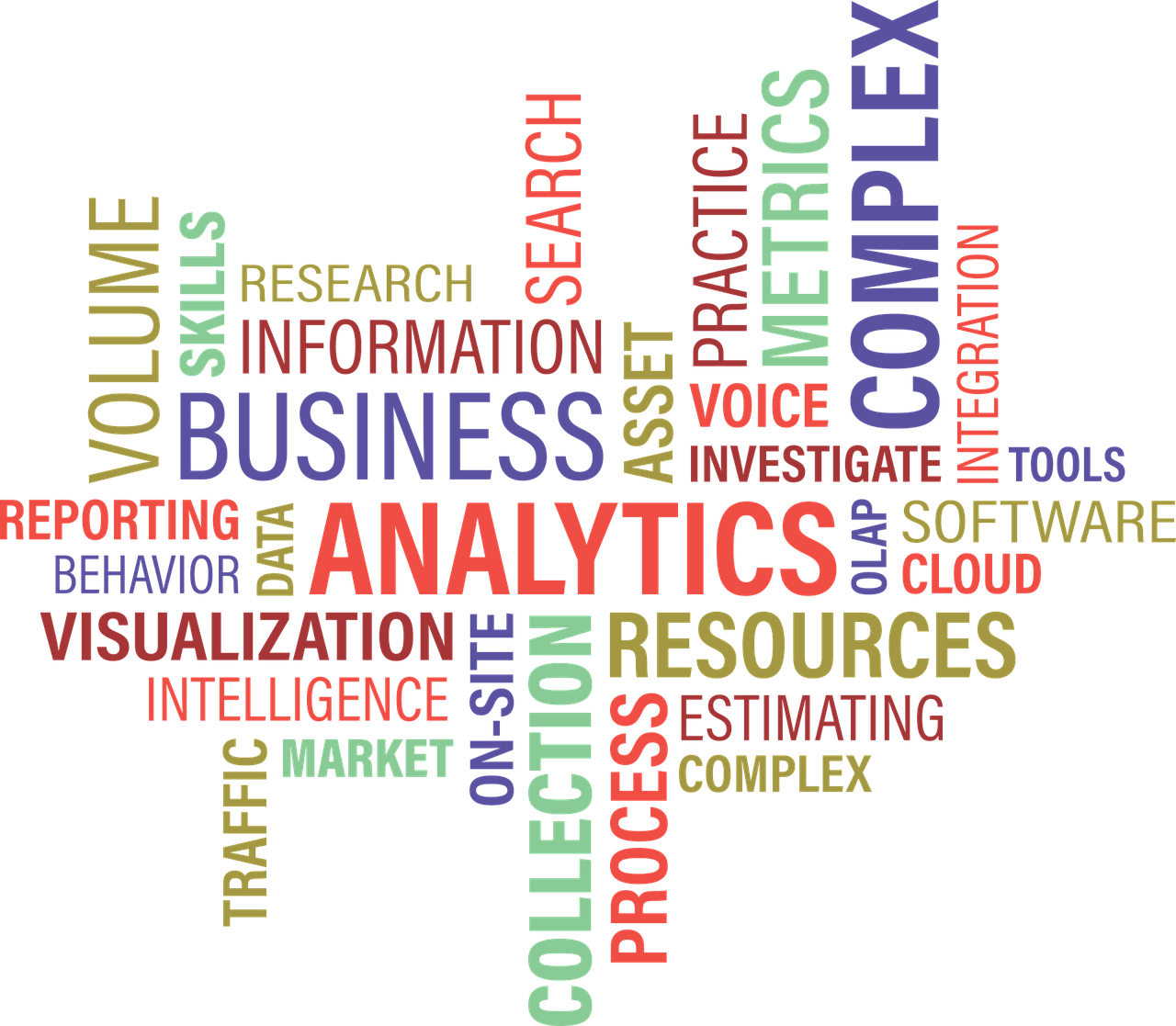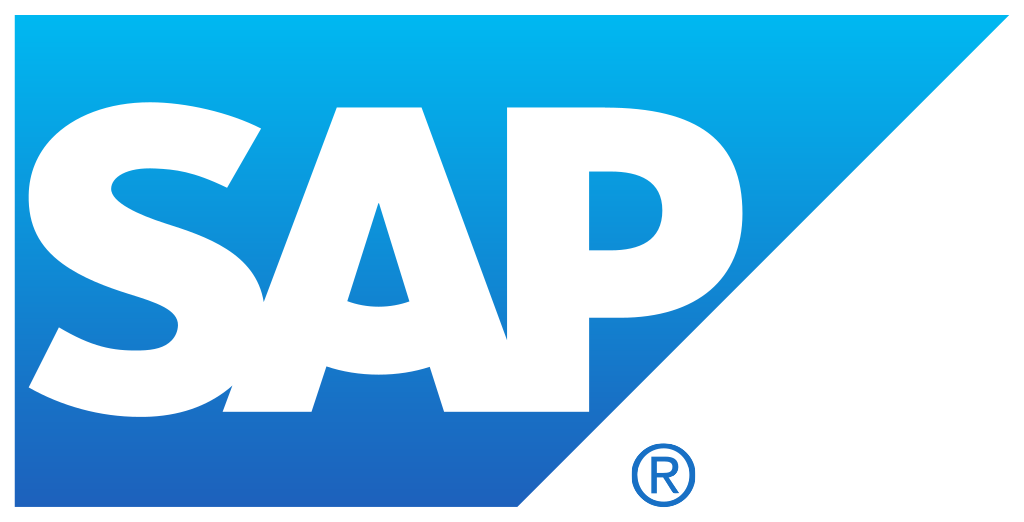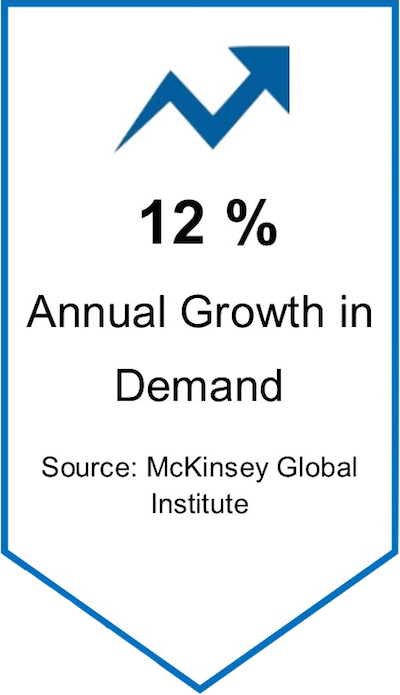Business Intelligence and Data Analytics

Many companies around the globe focusing on data to establish a competitive advantage, to optimize distribution and supply chain management and to develop an exclusive customer experience for a company's customer. By acknowledging the value of data scientist the demand for the professionals with skills in data analytics increases 12% annually according to McKinsey Global Institute.
MBA with the concentration in Business Intelligence and Data Analytics (BIDA) is designed by the faculty members of Graduate and Professional Studies in Business to accommodate the growing demand in the marketplace of the professionals with abilities to analyze the data and support the decision-making processes in Business. The Business Intelligence and Data Analytics Graduate Certificate is a designated STEM program.
Broadwell College of Business & Economics has established an SAP Next Gen Lab, one of only five in North America, and the only lab in the southeastern United States.  The lab aims to connect academic thought leaders, researchers, and students with the SAP ecosystem, including customers, partners, startups, and digital innovation experts, resulting in next-generation solutions for tech leaders based on the latest technology and thinking
The lab aims to connect academic thought leaders, researchers, and students with the SAP ecosystem, including customers, partners, startups, and digital innovation experts, resulting in next-generation solutions for tech leaders based on the latest technology and thinking
Additionally, the MBA Concentration in Business Intelligence and Data Analytics in collaboration with SAS Institute provides an opportunity for receiving a SAS Joint  Certificate upon the completion of all required courses for BIDA Concentration.
Certificate upon the completion of all required courses for BIDA Concentration.
Required Classes for BIDA Concentration
Data analytics help decision makers perform quicker analysis and use the valuable information to make better decisions. This course introduces several commonly used modeling tools to develop and improve students' analytical skills through a variety of realistic situations. The skills learned in this course will help students to recognize a decision situation, understand the business problem, and deal with uncertainty and complex interactions to solve the problem. This course is cross-listed with ISBA 630 and equivalent to ISBA 630.
Prerequisite: BADM 530 or equivalent.
This course focuses on building 'web-intelligence' applications exploiting big data sources arising from social media, mobile devices, and sensors, using new big-data platforms. The past decade has witnessed the development of big data platforms and associated technologies such as distributed file systems, no-SQL databases, and stream computing engines. Online advertising, machine translation, natural language understanding, sentiment mining, personalized medicine, and national security are some examples of web-intelligence applications that are already wide-spread in different business areas. In this course, we explore some such applications and related techniques such as text analytics, social media analysis, cloud and distributed systems, big data visualization using Tableau and GIS along with parallel implementations using map-reduce and related platforms.
Prerequisite: MKTG 640 or consent of instructor.
Data analytics focuses on improving existing operations and supports the enterprise resource planning by streamlining or optimizing business processes. Business analytics help decision makers perform quicker analysis and use the valuable information to make better decisions. This course introduces several commonly used modeling tools to develop and improve students' analytical skills through a variety of realistic situations. The skills learned in this course will help students to recognize a decision situation, understand the business problem, and deal with uncertainty and complex interactions to solve the problem. In order to equip students with these skills, this course is divided into four parts: (I) Descriptive and Predictive Analysis, (II) Prescriptive Analytics with low uncertainty, (III) Prescriptive Analytics with high uncertainty and (IV) Complex Predictive Analytics. Part I will cover forecasting and time series analysis, Part II will cover modeling, optimization, and solvers. Part III will cover decision trees for structuring decision problems under uncertainty, waiting line models, simulation and Part IV will cover multi-criteria decision making, heuristics, and simulation-optimization. Throughout the course, we will use SAS software as a modeling and analysis environment. This course is cross-listed with an equivalent to MGMT 610.
Prerequisite: BIDA 630
This course focuses on the integration of business processes and real-time data analysis on a specific business intelligence platform. Using a variety of globally used, user-friendly technologies students will have hands-on experience and develop powerful analytical capabilities to end users. Major components of business intelligence platforms will be introduced and fundamentals of analytics (reporting, visualization, and prediction) will be taught using SAP Business Intelligence Business Objects. This course uses the latest in technology to show the practice of data analytics in the real world. You will experience practical applications of analytics through guided exercises and case studies
Prerequisite: BIDA 630 and BIDA 650
The prerequisite business analytics course presented predictive and prescriptive analytics tools at the introductory level. This course goes beyond by covering the tools and theory at a deeper level with an emphasis on the challenges that can arise in implementing analytical approaches within an actual organization. With the objective of helping students make better business decisions using advanced analytics, the course emphasizes that business analytics is a practical discipline which requires mastery of both methodology and business applications using special software and tools. Course topics include a review of basis forecasting, large-scale optimization, network optimization, multicriteria-decision making and heuristics algorithms. The course requires students to work on real-world projects where a significant competitive advantage has been obtained through large-scale data analysis. Examples include supply chain management, healthcare, pricing, and revenue management. Throughout the course, we will use SAP Next-Gen Lab, SAS software as a modeling and analysis environment including SAS Enterprise Guide, SAS Enterprise Miner, SAS Forecast Studio and SAS OR.
Prerequisite: BIDA 660
Click below to find the information on Foundation and Core classes of the MBA Program.
You will find information about Admission to the MBA program on the Admissions page or fill out the online application by clicking Apply button!
Career Outlook
Job Market



Careers in Business Intelligence and Data Analytics
Students who receive Graduate Certificate or graduate with an MBA with a concentration in Business Intelligence and Data Analytics will have the required skills to apply for the following positions:
- Business Consultant
- Business Analyst
- Data Analyst
- Business Intelligence Manager
- Marketing Analyst
- Digital Marketing Analyst
- Sales Operations Manager
- Information Manager
Dr. Burcu Adivar
Ph.D. from the North Carolina State University, Edward Fitts Department of Industrial and systems engineering
Email: badivar1@uncfsu.edu
Dr. Murat Adivar
Ph.D. from the Ankara University, Department of Mathematics
Post-Doc. from the Missouri University of Science and Technology
Email: madivar@uncfsu.edu
Dr. Suzanne Altobello
Email: saltobello@uncfsu.edu
Dr. Aysegul Cansizoglu
Ph.D. from the North Carolina State University, Edward Fitts Department of Industrial and systems engineering
Email: acansizoglu@uncfsu.edu
Dr. Sam Gosh
Ph.D. from the University of Maryland, Department of Civil and Environmental Engineering
Email: sgosh@uncfsu.edu
Dr. Su Dong
Ph.D. from the University of North Carolina in Charlotte
Email:sdong@uncfsu.edu
Dr. Gavin Jiayun Wu
Ph.D. from the University of Arizona in Tucson
Email:jwu2@uncfsu.edu


